Graduate Programme in Climate Change and Sustainability
Introduction
Introduction
The Department of Geography is excited to announce the launch of its new graduate programme in Climate Change and Sustainability for the 2024-2025 academic year.
Please discover below the motivation and possible degree options in this innovative new programme.
Responding to the Global Challenge
Climate change threatens lives and livelihoods on a global scale, including current patterns of economic growth and poverty reduction. Climate change also provides motivation to deal with its causes, many of which are rooted in unsustainable forms of development that also drive ever greater global injustices, wealth disparities and vulnerabilities, and the opportunity to create a fairer world and more sustainable ways of living. The strength of links between climate change and sustainability is reflected in the UN’s 2030 Agenda for Sustainable Development, which identifies climate change as “one of the greatest challenges of our time” with the power to “undermine the ability of all countries to achieve sustainable development” and to threaten the life-support systems of our planet.
The challenges posed by climate change have risen to the top of global agenda. The same is true in Asia, the world’s most rapidly changing continent, where concern is focused on the challenges posed by a myriad of complex interactions between climate variability, humans and economic, political and biophysical-ecological systems. Growing demands to integrate adaptation, sustainability and climate-resilience into the plans and activities of governments, development agencies, businesses, NGOs and the general publics across a range of geographic scales have created a pressing need for suitably trained individuals across a broad range of careers.
Responding to the global challenge, the graduate programme in Climate Change and Sustainability will produce the next generation of environmental and industry leaders who have advanced knowledge of the complexities of climatic change and impacts on society, and are interdisciplinary and analytical in their approach to climate change and sustainability issues and solutions.
Programme Objectives
The Climate Change and Sustainability graduate programme will provide students with:
- an interdisciplinary training to equip students with an understanding of the climate change dimensions of sustainability trends and interventions.
- a thorough conceptual framework and the skills necessary to analyse effectively the relationships between climate change, other pressing environmental issues and sustainability, and to make informed judgments about policies and their implementation.
- Understanding of the physical, ecological, social, cultural, and political-economic effects of climate change and sustainability, to inform critical analysis and effective action.
- critical insights into the key strategies, policies and practices currently employed to promote and finance climate change adaptation, mitigation and sustainability.
- skills needed to formulate, investigate and implement different approaches aimed at ensuring future climate-secure and sustainable policies and practices.
- Opportunities to develop personalised areas of specialist expertise within the field of climate change and sustainability.
Programme Options
We provide a flexible range of programme options including the possibility to stack qualifications toward the MSc in Climate Change and Sustainability. To learn more about the structure and requirements of specific requirements and structure of each programme please click on the options below.
- MSc in Climate Change and Sustainability (MSc CCS)
- Graduate Diploma in Climate Change and Sustainability (Grad Dip CCS)
- Graduate Certificate in Climate Change and Sustainability (Grad Cert. CCS)
- Stackable MSc in Climate Change and Sustainability
Market Relevance
Growing demands to integrate adaptation, sustainability and climate-resilience into the plans and activities of governments, development agencies, NGOs, and the private and public sector, across a range of geographic scales have created a pressing need for suitably trained individuals across a broad range of careers. The future job market in climate change and sustainability related fields is rapidly evolving and will extend beyond traditional job roles and designations. The demand for knowledge and skills in climate change and sustainability solutions has become a mainstream set of expectations across the private and public sectors with everyday decisions expected to be cognisant of climate change, the impacts of climatic change and how future decisions should be made in a sustainable manner.
The programme is targeted at both the international and domestic students. At both scales there is escalating demand across the private and public sector for knowledge and skills in climate change and sustainability that can support transformations in business processes and operations.
How to Apply
The online application for the August 2024 admission opens from 15 January 2024 to 31 March 2024.
A) To apply to the MSc and Graduate Diploma programme, please do so via this URL:
https://inetapps.nus.edu.sg/GDA2/Home.aspx
Please make sure that you select the programme that you wish to be considered for (MSc or Graduate Diploma) and check and review your uploaded materials carefully before submitting your application. Please ensure that you have also uploaded the following:
- Official or up-to-date academic transcripts,
- Degree scroll (if applicable),
- TOEFL/IELTS result (if any - for international applicants); &
- One reference either from a university advisor (in the case of recent graduates) or an employer (in the case of those who graduated from university several years ago). Referees are to upload their references, having been assigned by the applicant. Applicants to refer to the online guide for applicants (found in application system) for instructions how to assign a referee.
(B) To apply to the Graduate Certificate programme, please do so via this URL:
Online Application Portal (nus.edu.sg)
Please ensure that you upload the following:
- Official or up-to-date academic transcripts;
- degree scroll (if applicable); &
- TOEFL/IELTS result (if any - for international applicants).
Please email geobox1@nus.edu.sg to notify the Geography officer once the application is submitted.
Master of Science
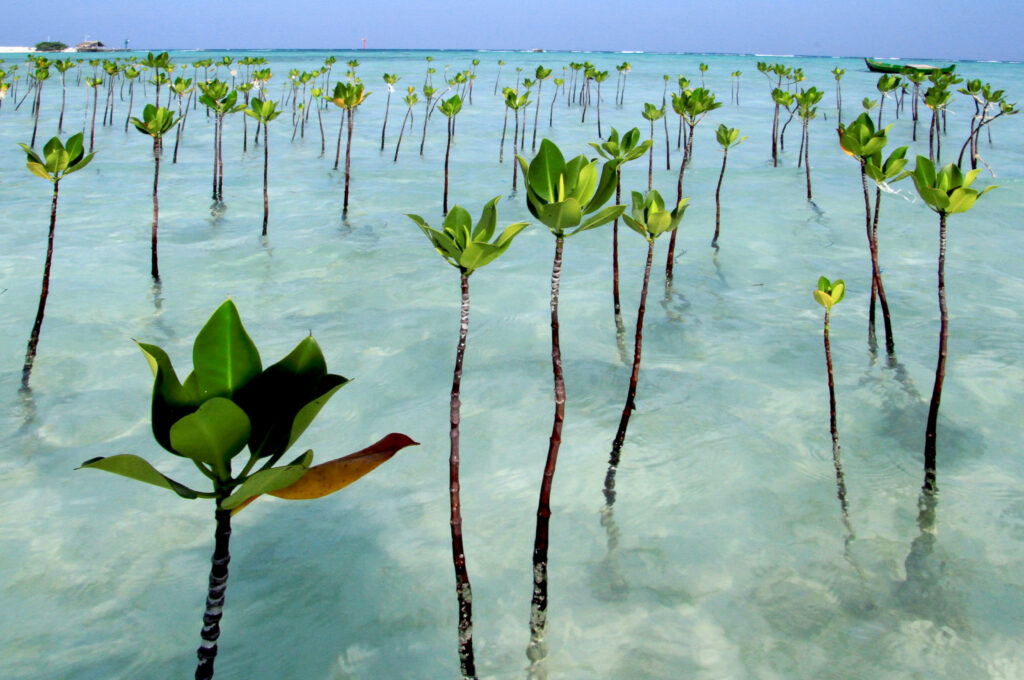

The Master of Science in Climate Change and Sustainability (MSc CCS), is a new one year single-degree coursework MSc programme based in Department of Geography at NUS.
This innovative programme provides an exciting opportunity for the prospective students to study at NUS, a top university in Asia, as a pathway to a PhD or to further industry career prospects as a leader in climate change and sustainability practices.
Who Should Apply
Those who are curious and passionate about climate change and it threats to society, and are interested in discovering sustainable solutions to climate threats.
Admission Requirements
The MSc in Climate Change and Sustainability has one intake per year (August). Applicants seeking admission must have obtained either:
- A Honours degree (Merit/Second Class and above) or the international equivalent (e.g., a four-year Bachelors degree with at least an average grade of B or equivalent) in the subject or related fields; or
- A good Bachelors degree (at least an average grade of B or equivalent) in the subject or related fields; or
- A Bachelor's degree with a relevant Graduate Diploma with a minimum GPA of 3.00; or
- Other qualifications and professional experience in relevant fields subject to approval by the Graduate Studies Division, Faculty of Arts and Social Sciences.
Applicants who do not have a degree from an English-speaking university, must present evidence that they have attained the basic level of English language proficiency either a TOEFL score of 100 (for the internet-based test) or IELTS score of 7.0. The test must have been taken no longer than two years prior to the proposed date of admission. Exceptions may be allowed on an individual basis.
International applicants are asked to submit evidence of financial support in the form of a letter of confirmation from a sponsor and a bank statement, or documentary evidence of scholarship or other award obtained. The financial statement should reflect a minimum sum of SGD50,000.
Duration
Full-time students will study over a 12-month period that spans three semesters, which start in Semester 1 (August–November), continues in Semester 2 (January–April), and ends in Semester “3” (comprising the two Special Terms and running from May to July). Students will take courses during the first two semesters and undertake a research project during the third semester.
Under normal circumstances, the period of candidature is 12 months of full-time study or 24 months of part-time study from the date of commencement of the course. The maximum period of candidature for the MSc Programme is 24 months of full-time study or 36 months of part-time study from the date of commencement of the course, inclusive of approved leave of absence and medical leave. Leave of absence of up to one year will not be counted towards a candidate’s maximum candidature. Subsequent leave will be considered as part of the candidature.
Programme Structure
The curriculum of the MSc in Climate Change and Sustainability programme consists of four core compulsory courses, four elective courses, and a 2-course equivalent research project Core courses will be offered every academic year. Elective courses may not necessarily be offered in the same academic year. All courses are worth 4 Units, except the research project which is equal to 8 course Units. Students must complete 40 Units to complete the MSc programme. Please refer to "Courses" tab for the detailed information on these courses.

List of Core Courses
CCS5101 Climate Change the Science and the Policy
The course is a blend of physical, human and political geographies, providing an overview of the entire gamut of topics under climate change. The course is centred on how science factors into global (climate) policy making. The topics to be discussed include the basic science of climate change, climate scenarios and climate impacts, climate policies international agreements, protocols, frameworks, and the human and political dimensions in tackling climate change towards adaptation and mitigation. The course will be taught/co-taught by faculty members under the three research groups: Tropical Environmental Change (TEC), Politics, Economies & Space (PEAS) and Social Cultural Geographies (SCG), of the Dept. of Geography, including guest lecturers, where relevant.
CCS5102 Sustainability and Climate Change
Sustainability approaches can be experienced differently within and between communities. Climate change is placing further stressors on these experiences. This course will explore different models of sustainability and their critiques, with particular focus on the challenges of developing sustainable initiatives in the context of climate change. Relevant tools will be discussed. Examples, including water, food and energy regimes, are used to better understand approaches and challenges to developing sustainable outcomes in a changing environment.
CCS5103 Political Economy of Climate Change & Sustainable Development
This course introduces the political and economic dimensions of climate governance that shape sustainable development goals and ecological outcomes. It aims to develop an understanding of key issues at the policy-science interface of climate governance. Students will learn about the unequal spatial and social distribution of climate risks and impacts that affect food security, biodiversity and climate adaptation at local, urban, national, regional (ASEAN) and global scales. Combining lectures, seminar-style discussions, assignments and student presentations, the course will bring insights about concepts such as climate justice and nature-based solutions that have basic and applied policy relevance for Asian contexts.
CCS5104 Methods and Practice in Sustainability
The course introduces students to the principles and practice of research design. It adopts an epistemologically grounded approach to learning social science research methods and how these can be applied to research projects on sustainability. Students will be introduced to three philosophies of knowledge, namely positivism, hermeneutics and constructivism. They will learn how to select suitable research methods in sustainability informed by these ‘ways of knowing’. Specifically, the course will introduce research techniques that include oral/aural, visual and practice-based approaches.
List of Elective Courses
CCS5201 Introduction to Climate Modelling
The course introduces the science and techniques of climate modelling through lectures and hands-on applications. In short, this course explains how climate models work. The objective of this course is for the students develop a basic understanding of climate models work and how they ‘add value’ in climate research. The course will provide good insights into the principles that govern the earth system and modelling them, through lectures, hands-on training and assignments. The students will also be introduced to climate data and will be guided to perform some fundamental data analyses for model evaluations and climate projections for the future. The course is helpful to anyone interested in both weather and climate science.
CCS5202 Climate Hazards Risk and Uncertainty
Hazards and the risks posed to society are rapidly changing in response to climate change. This course explores the changes in magnitude and frequency of hazards across marine, hydrological, climatic and ecological systems. The cascading and compounding outcomes of the changing hazardscape are also evaluated in the context of environmental thresholds and tipping points. Risks to society and methods to identify and understand escalating risks using stochastic and probabilistic approaches are examined. The multiple dimensions of uncertainty are explored along with understanding the effective communication of risk and uncertainty, and how decisions can be made under deep uncertainty.
CCS5203 Resilience of Socio-Ecological Systems
Present-day society depends heavily on social-ecological systems as a source of much of the raw materials, food, water and energy it relies upon. Social-ecological systems are characterized by dynamic and complex interactions between humans and the environment. Conventional management approaches emphasizing system efficiency may inadvertently reduce resilience, pushing critically important social-ecological systems towards unpredictable behaviour, regime shifts, or collapse. Through case studies and student-led discussion, this course will cover a variety of conceptual and analytical frames through which to filter complexity and enhance resilience of social-ecological systems.
CCS5204 Water, Food and Energy Insecurities
The course discusses key issues in the nexus among water, food and energy, in the context of climate change. The course lays insights in viewing this nexus as a ‘resource scarcity’, globally, in a general context and in the Southeast Asian region, specifically, given the anthropogenic consequences these sectors have had. Bearing in mind the complex interactions of these three resources opens rooms to explore the needs for a renewed regional/national drive to combat the negative impacts of climate change. Water, food, and energy insecurities are impediments to social stability and economic growth that there is an immediate need to address these challenges towards a sustainable future.
CCS5205 Sustainable Finance
The course introduces the origins, theories, practices, geographies, and debates on sustainable finance. It explains how finance, through its instruments, markets, and institutions affects and is affected by economic, social, and environmental issues, at all scales, from individual households and firms, through nations, to global organizations. It provides students with enhanced financial literacy and ability to understand financial data, including the application of financial analysis to various sectoral and geographical contexts. By the end students will gain a better understanding on how the financial system can contribute to sustainable development and how it needs to be transformed to do so.
CCS5206 How to Live Well on a Damaged Planet
This course explores how life is being reshaped, reimagined and re-practiced in the Anthropocene, an era of cascading social and environmental crises. Centering approaches drawn from social and cultural geography alongside geohumanities, environmental humanities and science and technology studies, we explore impacts and legacies of planetary change on entangled human, non-human and inorganic life. We trace how unprecedented shifts are provoking diverse communities to reformulate what it means to live, and to live well. Rather than positing the ‘problem’, we will learn the arts of listening; rather than formulating ‘solutions’, we will attend to speculative and place-based responses.
CCS5207 Coastal Vulnerability, Risk and Adaptation
Climate change and sea-level rise threaten the existence and livelihoods of more than 400 million people who live in low-lying coastal areas. This 10-day field-based course explores the vulnerability and risk posed by seal-level rise in coastal communities and examines adaption approaches and implementation strategies adopted. Using field examples students will gain an understanding of the real versus perceived threats to coastal communities and will introduce approaches to conceptualise and quantify vulnerability and determine risk profiles in coastal settings. The course will also explore the robustness of adaption approaches and implementation in coastal settings and will contrast developed and developing country approaches.
*Students may also select one of the following courses as an elective course
GE5211 Dynamic Environments
GE5223 Introduction to Applied GIS
This course aims to introduce students the fundamental concepts and components of Geographic Information Systems (GIS). Fundamental concepts covered include spatial data models, data quality, cartographic principles, and spatial analysis. Hands-on training provided includes spatial data development, attribute management, geovisualization, and spatial analysis operations. Some selected cases of GIS applications in social sciences, humanities, environmental studies, and management will be introduced.
The role of GIS as an integrated platform for decision making will be highlighted. The course is for students who have no prior GIS background but wish to apply geospatial techniques in their respective fields of interest.
GE5229 Political Ecology: People, Power, and Nature
Political ecology is a vibrant interdisciplinary field for critically investigating complex relations between environment and society, paying close attention to power and politics. This course traces the foundations of the field, particularly within geography, and its diverse epistemological approaches, which address how capitalism, knowledge, gender, race, and more shape human interactions with biophysical natures. The course covers current themes such as decolonization, urbanization, and climate change and is intended for graduate students with and without a political ecology background. Students will gain the theoretical tools and analytical skills necessary to understand, and address, urgent contemporary environmental and social problems.
Research Project
CCS5301 Research Project in Climate Change and Sustainability
This course provides the opportunity for students to conduct an in-depth research project as part of the MSc in Climate Change and Sustainability. Students are required to apply relevant research approaches and techniques under the guidance of an advisor to a problem in the field, and to write the research and its analyses in the form of a short thesis (10,000 words maximum).
Assessment
The assessment for each course will be based on a combination of examination and continuous assessment, specified in each course. A candidate who fails a core course, defined as receiving a F for the course, must retake the same core course during the period of candidature. A candidate is allowed to retake the same core course once. Failure to pass the core course after the second attempt will result in termination of the candidature. A candidate who fails an elective course may be permitted to either retake the same elective course once, or replace the failed course by taking another elective course in a subsequent academic year. Failure to pass the elective course after the second attempt will result in termination of the candidature.
A candidate may withdraw from an elective course within the first two weeks of a semester. A candidate who does not withdraw from a course within the said timeframe must be examined in that course unless granted leave of absence by the Head of Department or his/her nominee. The Head, or his/her nominee, will consider each application according to the circumstances of the case.
A candidate who is not granted leave of absence but who withdraws from any course of an examination after a given deadline will be deemed to have sat and failed in that course of the examination. No extension of the maximum period of candidature will be permitted as a result of such failure.
Graduation Requirements
Students are required to complete 40 Units before graduation, including four core courses (sub-total = 16 Units), four elective courses (sub-total = 16 Units) and the research project (sub-total = 8 Units).
Fees and Payment
The tuition fee for AY2024/2025 is S$54,500 (including GST). Candidates shall pay a S$3,270 (including GST) non-refundable acceptance fee upon acceptance of the offer of admission, which will subsequently be used to offset part of the tuition fee.
Upon admission, payment should be made in equal instalments over 2 regular semesters for full-time students and 4 regular semesters for part-time students. There will be a 10% tuition fee rebate if the student is a Singapore Citizen or Singapore Permanent Resident (non-alumni), and a 15% tuition fee rebate to NUS alumni (Singapore Citizen, Singapore Permanent Resident, or International Student).
In addition, candidates are also required to pay other miscellaneous student fees as decided by the University.
Graduate Diploma
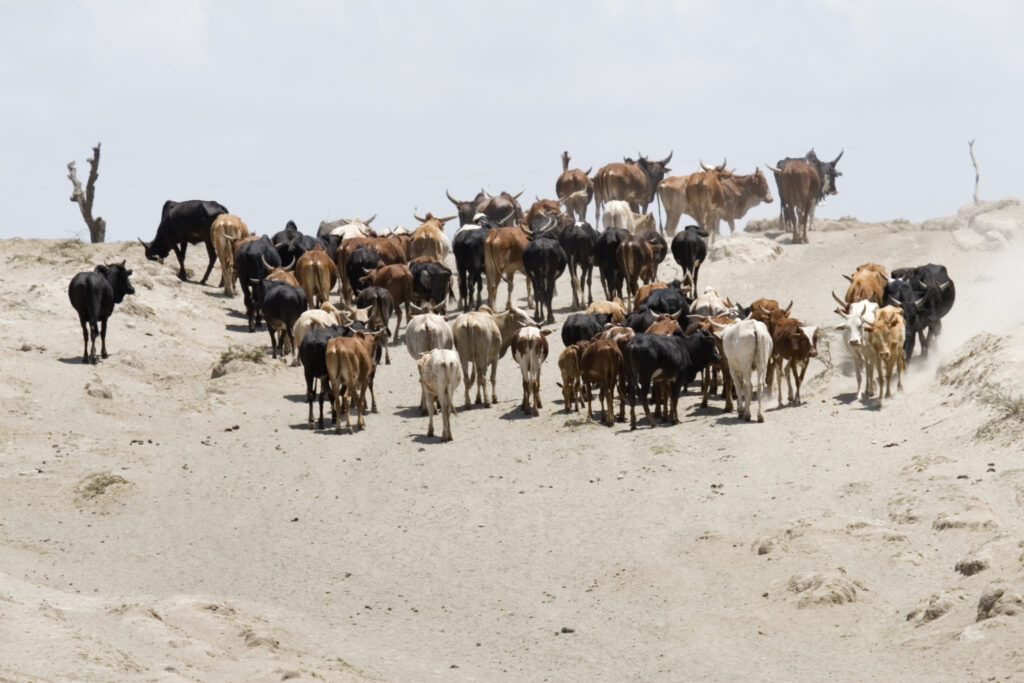
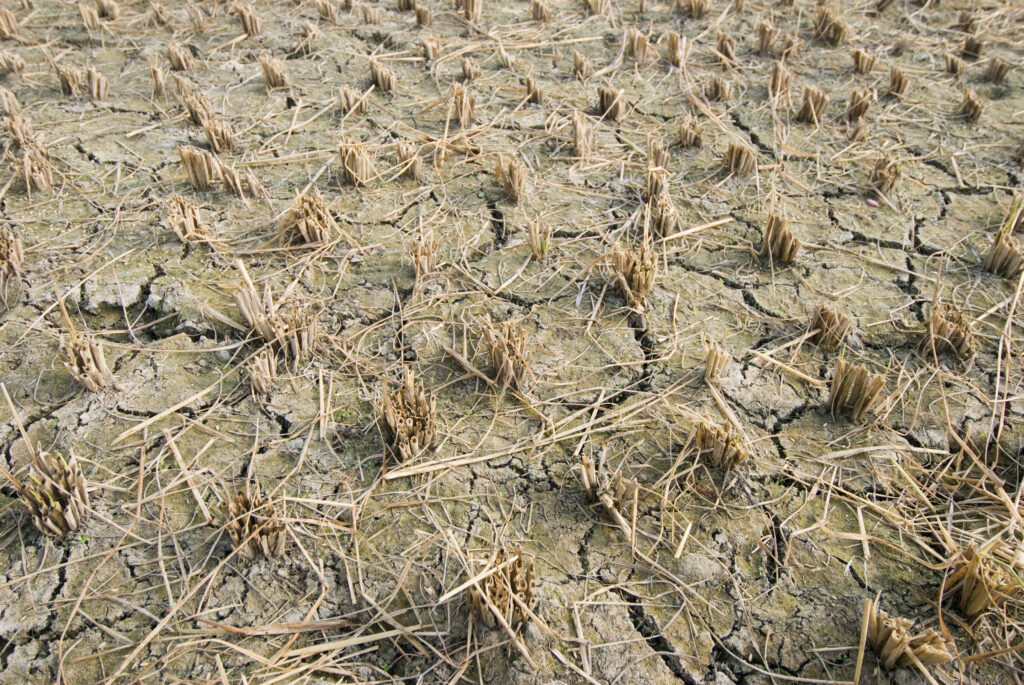
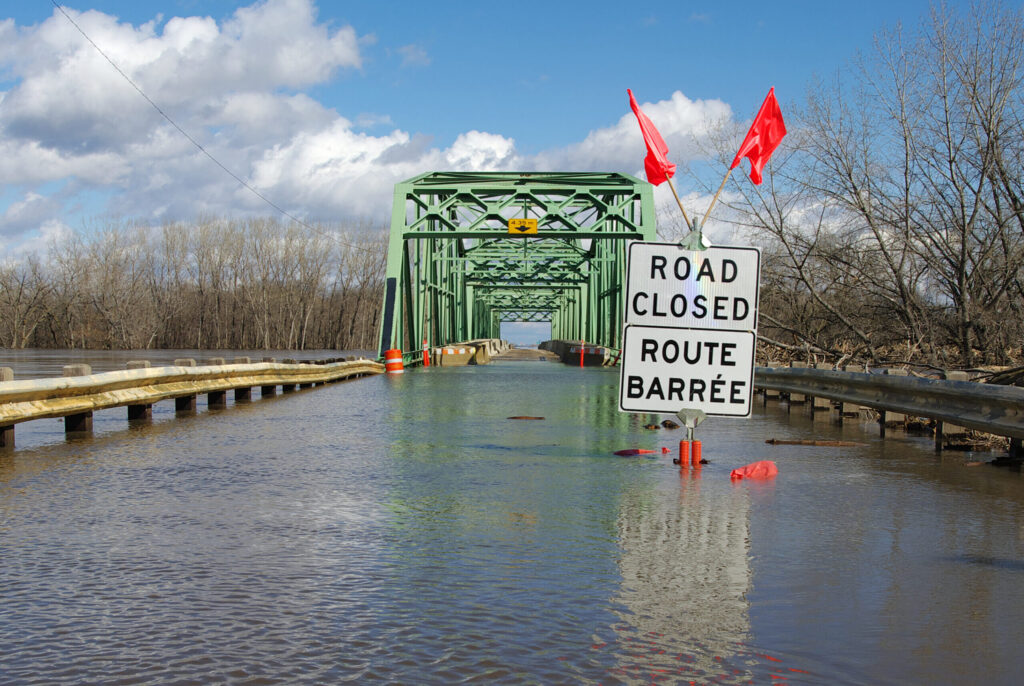
The Graduate Diploma in Climate Change and Sustainability (Grad Dip CCS), is a new two- semester degree coursework programme based in Department of Geography at NUS.
This innovative programme provides an exciting opportunity for the prospective students to study at NUS, a top university in Asia as a pathway to further industry career prospects in climate change and sustainability practices.
Who Should Apply
Those who are curious and passionate about climate change and its threats to society, and are interested in discovering sustainable solutions to climate threats.
Admission Requirements
The Graduate Diploma in Climate Change and Sustainability has one intake per year (August). Applicants seeking admission must have obtained either:
- A bachelor’s degree in the subject or related fields; or
- A bachelor’s degree with a relevant Graduate Certificate with a minimum GPA of 3.00.
- Candidates with other qualifications and experience may be considered on a case-by-case basis, subject to approval by the Graduate Studies Division, Faculty of Arts and Social Sciences.
Applicants who do not have a degree from an English-speaking university must present evidence that they have attained the basic level of English language proficiency either a TOEFL score of 100 (for the internet-based test) or IELTS score of 7.0. Exceptions may be allowed on an individual basis.
Applicants should provide one letter of reference from an academic in the case of a recent graduate (graduated in the three years prior to application) or from a recent/current employer in the case of an applicant who graduated more than three years prior to the time of application. Please refer to instructions available via the NUS Graduate Admission System: Graduate Admission System (GDA2), National University of Singapore (nus.edu.sg). These instructions include guidance on how to assign a referee/upload a referee’s statement.
Duration
Full-time students will study over a 12-month period that spans two semesters, which start in Semester 1 (August–November), and continues in Semester 2 (January–April).
Under normal circumstances, the period of candidature is 12 months of full-time study or 24 months of part-time study from the date of commencement of the course. The maximum period of candidature for the MSc Programme is 24 months of full-time study or 36 months of part-time study from the date of commencement of the course, inclusive of approved leave of absence and medical leave. Leave of absence of up to one year will not be counted towards a candidate’s maximum candidature. Subsequent leave will be considered as part of the candidature.
Programme Structure
The curriculum of the Graduate Diploma in Climate Change and Sustainability programme consists of three core compulsory courses, and three elective courses. Core courses will be offered every academic year. Elective courses may not necessarily be offered in the same academic year. All courses are worth 4 Units. Students must complete 24 course Units to complete the Grad. Dip. programme. Please refer to "Courses" tab for the detailed information on these courses.

List of Core Courses
CCS5101 Climate Change the Science and the Policy
The course is a blend of physical, human and political geographies, providing an overview of the entire gamut of topics under climate change. The course is centred on how science factors into global (climate) policy making. The topics to be discussed include the basic science of climate change, climate scenarios and climate impacts, climate policies international agreements, protocols, frameworks, and the human and political dimensions in tackling climate change towards adaptation and mitigation. The course will be taught/co-taught by faculty members under the three research groups: Tropical Environmental Change (TEC), Politics, Economies & Space (PEAS) and Social Cultural Geographies (SCG), of the Dept. of Geography, including guest lecturers, where relevant.
CCS5102 Sustainability and Climate Change
Sustainability approaches can be experienced differently within and between communities. Climate change is placing further stressors on these experiences. This course will explore different models of sustainability and their critiques, with particular focus on the challenges of developing sustainable initiatives in the context of climate change. Relevant tools will be discussed. Examples, including water, food and energy regimes, are used to better understand approaches and challenges to developing sustainable outcomes in a changing environment.
CCS5104 Methods and Practice in Sustainability
The course introduces students to the principles and practice of research design. It adopts an epistemologically grounded approach to learning social science research methods and how these can be applied to research projects on sustainability. Students will be introduced to three philosophies of knowledge, namely positivism, hermeneutics and constructivism. They will learn how to select suitable research methods in sustainability informed by these ‘ways of knowing’. Specifically, the course will introduce research techniques that include oral/aural, visual and practice-based approaches.
List of Elective Courses
CCS5103 Political Economy of Climate Change & Sustainable Development
This course introduces the political and economic dimensions of climate governance that shape sustainable development goals and ecological outcomes. It aims to develop an understanding of key issues at the policy-science interface of climate governance. Students will learn about the unequal spatial and social distribution of climate risks and impacts that affect food security, biodiversity and climate adaptation at local, urban, national, regional (ASEAN) and global scales. Combining lectures, seminar-style discussions, assignments and student presentations, the course will bring insights about concepts such as climate justice and nature-based solutions that have basic and applied policy relevance for Asian contexts.
CCS5201 Introduction to Climate Modelling
The course introduces the science and techniques of climate modelling through lectures and hands-on applications. In short, this course explains how climate models work. The objective of this course is for the students develop a basic understanding of climate models work and how they ‘add value’ in climate research. The course will provide good insights into the principles that govern the earth system and modelling them, through lectures, hands-on training and assignments. The students will also be introduced to climate data and will be guided to perform some fundamental data analyses for model evaluations and climate projections for the future. The course is helpful to anyone interested in both weather and climate science.
CCS5202 Climate Hazards, Risks and Uncertainty
Hazards and the risks posed to society are rapidly changing in response to climate change. This course explores the changes in magnitude and frequency of hazards across marine, hydrological, climatic and ecological systems. The cascading and compounding outcomes of the changing hazardscape are also evaluated in the context of environmental thresholds and tipping points. Risks to society and methods to identify and understand escalating risks using stochastic and probabilistic approaches are examined. The multiple dimensions of uncertainty are explored along with understanding the effective communication of risk and uncertainty, and how decisions can be made under deep uncertainty.
CCS5203 Resilience of Social-Ecological Systems
Present-day society depends heavily on social-ecological systems as a source of much of the raw materials, food, water and energy it relies upon. Social-ecological systems are characterized by dynamic and complex interactions between humans and the environment. Conventional management approaches emphasizing system efficiency may inadvertently reduce resilience, pushing critically important social-ecological systems towards unpredictable behaviour, regime shifts, or collapse. Through case studies and student-led discussion, this course will cover a variety of conceptual and analytical frames through which to filter complexity and enhance resilience of social-ecological systems.
CCS5204 Water, Food and Energy Insecurities
The course discusses key issues in the nexus among water, food and energy, in the context of climate change. The course lays insights in viewing this nexus as a ‘resource scarcity’, globally, in a general context and in the Southeast Asian region, specifically, given the anthropogenic consequences these sectors have had. Bearing in mind the complex interactions of these three resources opens rooms to explore the needs for a renewed regional/national drive to combat the negative impacts of climate change. Water, food, and energy insecurities are impediments to social stability and economic growth that there is an immediate need to address these challenges towards a sustainable future.
CCS5205 Sustainable Finance
The course introduces the origins, theories, practices, geographies, and debates on sustainable finance. It explains how finance, through its instruments, markets, and institutions affects and is affected by economic, social, and environmental issues, at all scales, from individual households and firms, through nations, to global organizations. It provides students with enhanced financial literacy and ability to understand financial data, including the application of financial analysis to various sectoral and geographical contexts. By the end students will gain a better understanding on how the financial system can contribute to sustainable development and how it needs to be transformed to do so.
CCS5206 How to Live Well on a Damaged Planet
This course explores how life is being reshaped, reimagined and re-practiced in the Anthropocene, an era of cascading social and environmental crises. Centering approaches drawn from social and cultural geography alongside geohumanities, environmental humanities and science and technology studies, we explore impacts and legacies of planetary change on entangled human, non-human and inorganic life. We trace how unprecedented shifts are provoking diverse communities to reformulate what it means to live, and to live well. Rather than positing the ‘problem’, we will learn the arts of listening; rather than formulating ‘solutions’, we will attend to speculative and place-based responses.
CCS5207 Coastal Vulnerability, Risk and Adpatation
Climate change and sea-level rise threaten the existence and livelihoods of more than 400 million people who live in low-lying coastal areas. This 10-day field-based course explores the vulnerability and risk posed by seal-level rise in coastal communities and examines adaption approaches and implementation strategies adopted. Using field examples students will gain an understanding of the real versus perceived threats to coastal communities and will introduce approaches to conceptualise and quantify vulnerability and determine risk profiles in coastal settings. The course will also explore the robustness of adaption approaches and implementation in coastal settings and will contrast developed and developing country approaches.
Assessment
The assessment for each course will be based on a combination of examination and continuous assessment, specified in each course. A candidate who fails a core course, defined as receiving a F for the course, must retake the same core course during the period of candidature. A candidate is allowed to retake the same core course once. Failure to pass the core course after the second attempt will result in termination of the candidature. A candidate who fails an elective course may be permitted to either retake the same elective course once, or replace the failed course by taking another elective course in a subsequent academic year. Failure to pass the elective course after the second attempt will result in termination of the candidature.
A candidate may withdraw from an elective course within the first two weeks of a semester. A candidate who does not withdraw from a course within the said timeframe must be examined in that course unless granted leave of absence by the Head of Department or his/her nominee. The Head, or his/her nominee, will consider each application according to the circumstances of the case.
A candidate who is not granted leave of absence but who withdraws from any course of an examination after a given deadline will be deemed to have sat and failed in that course of the examination. No extension of the maximum period of candidature will be permitted as a result of such failure.
Graduation Requirements
Students are required to complete 24 course Units before graduation, including three core courses (sub-total = 12 Units), three elective courses (sub-total = 12 Units).
Fees and Payment
The tuition fee for AY2024/2025 will be S$5450 (including GST) per course. The entire cost of the Graduate Diploma (six courses in total) will be S$32,700 (including GST).
In addition, candidates are also required to pay other miscellaneous student fees decided by the University.
Graduate Certificate
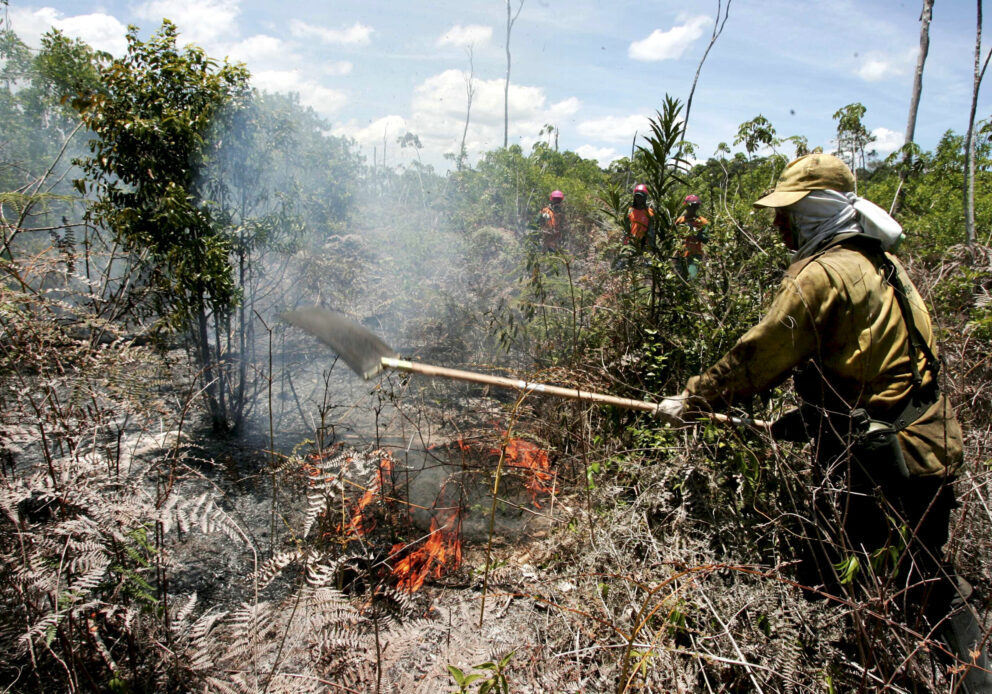
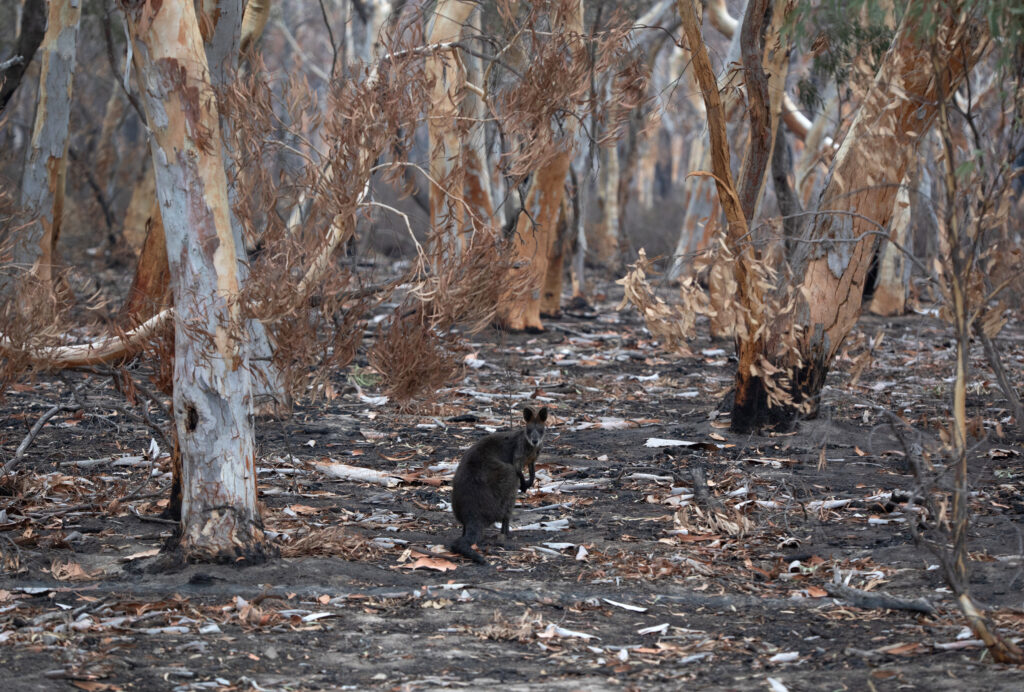
The Graduate Certificate in Climate Change and Sustainability (Grad. Cert. CCS), is a new degree coursework programme based in Department of Geography at NUS.
This innovative programme provides an exciting opportunity for the prospective students to study at NUS, a top university in Asia as a pathway to further graduate study, and to industry career prospects in climate change and sustainability practices.
Who Should Apply
Those who are curious and passionate about climate change and its threats to society, and are interested in discovering sustainable solutions to climate threats.
Admission Requirements
The Graduate Certificate in Climate Change and Sustainability has one intake per year (August). Applicants seeking admission must have obtained either:
- A bachelor’s degree in the subject or related fields; or
- Candidates with other qualifications and experience may be considered on a case-by-case basis, subject to approval by the Graduate Studies Division, Faculty of Arts and Social Sciences.
Applicants who do not have a degree from an English-speaking university must present evidence that they have attained the basic level of English language proficiency either a TOEFL score of 100 (for the internet-based test) or IELTS score of 7.0. Exceptions may be allowed on an individual basis.
Duration
Full-time students can study full-time over one semester, or part-time over two semesters, which start in Semester 1 (August–December), and continues in Semester 2 (January–June).
Under normal circumstances, the period of candidature is 6 months of full-time study or 12 months of part-time study from the date of commencement of the course. The maximum period of candidature for the Graduate Certificate Programme is me is 24 months of full-time study or 36 months of part-time study from the date of commencement of the course, inclusive of approved leave of absence and medical leave. Leave of absence of up to one year will not be counted towards a candidate’s maximum candidature. Subsequent leave will be considered as part of the candidature.
Programme Structure
The curriculum of the Graduate Certificate in Climate Change and Sustainability programme consists of two core compulsory courses, and two elective courses. Core courses will be offered every academic year. Elective courses may not necessarily be offered in the same academic year. All courses are worth 4 Units. Students must complete 16 course Units to complete the Graduate Certificate programme. Please refer to "Courses" tab for the detailed information on these courses.

List of Core Courses
CCS5101 Climate Change the Science and the Policy
The course is a blend of physical, human and political geographies, providing an overview of the entire gamut of topics under climate change. The course is centred on how science factors into global (climate) policy making. The topics to be discussed include the basic science of climate change, climate scenarios and climate impacts, climate policies international agreements, protocols, frameworks, and the human and political dimensions in tackling climate change towards adaptation and mitigation. The course will be taught/co-taught by faculty members under the three research groups: Tropical Environmental Change (TEC), Politics, Economies & Space (PEAS) and Social Cultural Geographies (SCG), of the Dept. of Geography, including guest lecturers, where relevant.
CCS5102 Sustainability and Climate Change
Sustainability approaches can be experienced differently within and between communities. Climate change is placing further stressors on these experiences. This course will explore different models of sustainability and their critiques, with particular focus on the challenges of developing sustainable initiatives in the context of climate change. Relevant tools will be discussed. Examples, including water, food and energy regimes, are used to better understand approaches and challenges to developing sustainable outcomes in a changing environment.
List of Elective Courses
CCS5201 Introduction to Climate Modelling
The course introduces the science and techniques of climate modelling through lectures and hands-on applications. In short, this course explains how climate models work. The objective of this course is for the students develop a basic understanding of climate models work and how they ‘add value’ in climate research. The course will provide good insights into the principles that govern the earth system and modelling them, through lectures, hands-on training and assignments. The students will also be introduced to climate data and will be guided to perform some fundamental data analyses for model evaluations and climate projections for the future. The course is helpful to anyone interested in both weather and climate science.
CCS5202 Climate Hazards, Risks and Uncertainty
Hazards and the risks posed to society are rapidly changing in response to climate change. This course explores the changes in magnitude and frequency of hazards across marine, hydrological, climatic and ecological systems. The cascading and compounding outcomes of the changing hazardscape are also evaluated in the context of environmental thresholds and tipping points. Risks to society and methods to identify and understand escalating risks using stochastic and probabilistic approaches are examined. The multiple dimensions of uncertainty are explored along with understanding the effective communication of risk and uncertainty, and how decisions can be made under deep uncertainty.
CCS5203 Resilience of Social-Ecological Systems
Present-day society depends heavily on social-ecological systems as a source of much of the raw materials, food, water and energy it relies upon. Social-ecological systems are characterized by dynamic and complex interactions between humans and the environment. Conventional management approaches emphasizing system efficiency may inadvertently reduce resilience, pushing critically important social-ecological systems towards unpredictable behaviour, regime shifts, or collapse. Through case studies and student-led discussion, this course will cover a variety of conceptual and analytical frames through which to filter complexity and enhance resilience of social-ecological systems.
CCS5204 Water, Food and Energy Insecurities
The course discusses key issues in the nexus among water, food and energy, in the context of climate change. The course lays insights in viewing this nexus as a ‘resource scarcity’, globally, in a general context and in the Southeast Asian region, specifically, given the anthropogenic consequences these sectors have had. Bearing in mind the complex interactions of these three resources opens rooms to explore the needs for a renewed regional/national drive to combat the negative impacts of climate change. Water, food, and energy insecurities are impediments to social stability and economic growth that there is an immediate need to address these challenges towards a sustainable future.
CCS5205 Sustainable Finance
The course introduces the origins, theories, practices, geographies, and debates on sustainable finance. It explains how finance, through its instruments, markets, and institutions affects and is affected by economic, social, and environmental issues, at all scales, from individual households and firms, through nations, to global organizations. It provides students with enhanced financial literacy and ability to understand financial data, including the application of financial analysis to various sectoral and geographical contexts. By the end students will gain a better understanding on how the financial system can contribute to sustainable development and how it needs to be transformed to do so.
CCS5206 How to Live Well on a Damaged Planet
This course explores how life is being reshaped, reimagined and re-practiced in the Anthropocene, an era of cascading social and environmental crises. Centering approaches drawn from social and cultural geography alongside geohumanities, environmental humanities and science and technology studies, we explore impacts and legacies of planetary change on entangled human, non-human and inorganic life. We trace how unprecedented shifts are provoking diverse communities to reformulate what it means to live, and to live well. Rather than positing the ‘problem’, we will learn the arts of listening; rather than formulating ‘solutions’, we will attend to speculative and place-based responses.
CCS5207 Coastal Vulnerability, Risk and Adaptation
Climate change and sea-level rise threaten the existence and livelihoods of more than 400 million people who live in low-lying coastal areas. This 10-day field-based course explores the vulnerability and risk posed by seal-level rise in coastal communities and examines adaption approaches and implementation strategies adopted. Using field examples students will gain an understanding of the real versus perceived threats to coastal communities and will introduce approaches to conceptualise and quantify vulnerability and determine risk profiles in coastal settings. The course will also explore the robustness of adaption approaches and implementation in coastal settings and will contrast developed and developing country approaches.
CCS5103 Political Economy of Climate Change & Sustainable Development
This course introduces the political and economic dimensions of climate governance that shape sustainable development goals and ecological outcomes. It aims to develop an understanding of key issues at the policy-science interface of climate governance. Students will learn about the unequal spatial and social distribution of climate risks and impacts that affect food security, biodiversity and climate adaptation at local, urban, national, regional (ASEAN) and global scales. Combining lectures, seminar-style discussions, assignments and student presentations, the course will bring insights about concepts such as climate justice and nature-based solutions that have basic and applied policy relevance for Asian contexts.
Assessment
The assessment for each course will be based on a combination of examination and continuous assessment, specified in each course. A candidate who fails a core course, defined as receiving a F for the course, must retake the same core course during the period of candidature. A candidate is allowed to retake the same core course once. Failure to pass the core course after the second attempt will result in termination of the candidature. A candidate who fails an elective course may be permitted to either retake the same elective course once, or replace the failed course by taking another elective course in a subsequent academic year. Failure to pass the elective course after the second attempt will result in termination of the candidature.
A candidate may withdraw from an elective course within the first two weeks of a semester. A candidate who does not withdraw from a course within the said timeframe must be examined in that course unless granted leave of absence by the Head of Department or his/her nominee. The Head, or his/her nominee, will consider each application according to the circumstances of the case.
A candidate who is not granted leave of absence but who withdraws from any course of an examination after a given deadline will be deemed to have sat and failed in that course of the examination. No extension of the maximum period of candidature will be permitted as a result of such failure.
Graduation Requirements
Students are required to complete 16 course Units before graduation, including two core courses (sub-total = 8 Units), two elective courses (sub-total = 8 Units).
Fees and Payment
The tuition fee for AY2024/2025 will be S$5450 (including GST) per course. The entire cost of the Graduate Certificate (four courses in total) will be S$21,800 (excluding GST).
In addition, candidates are also required to pay other miscellaneous student fees decided by the University.
Stackable Master of Science
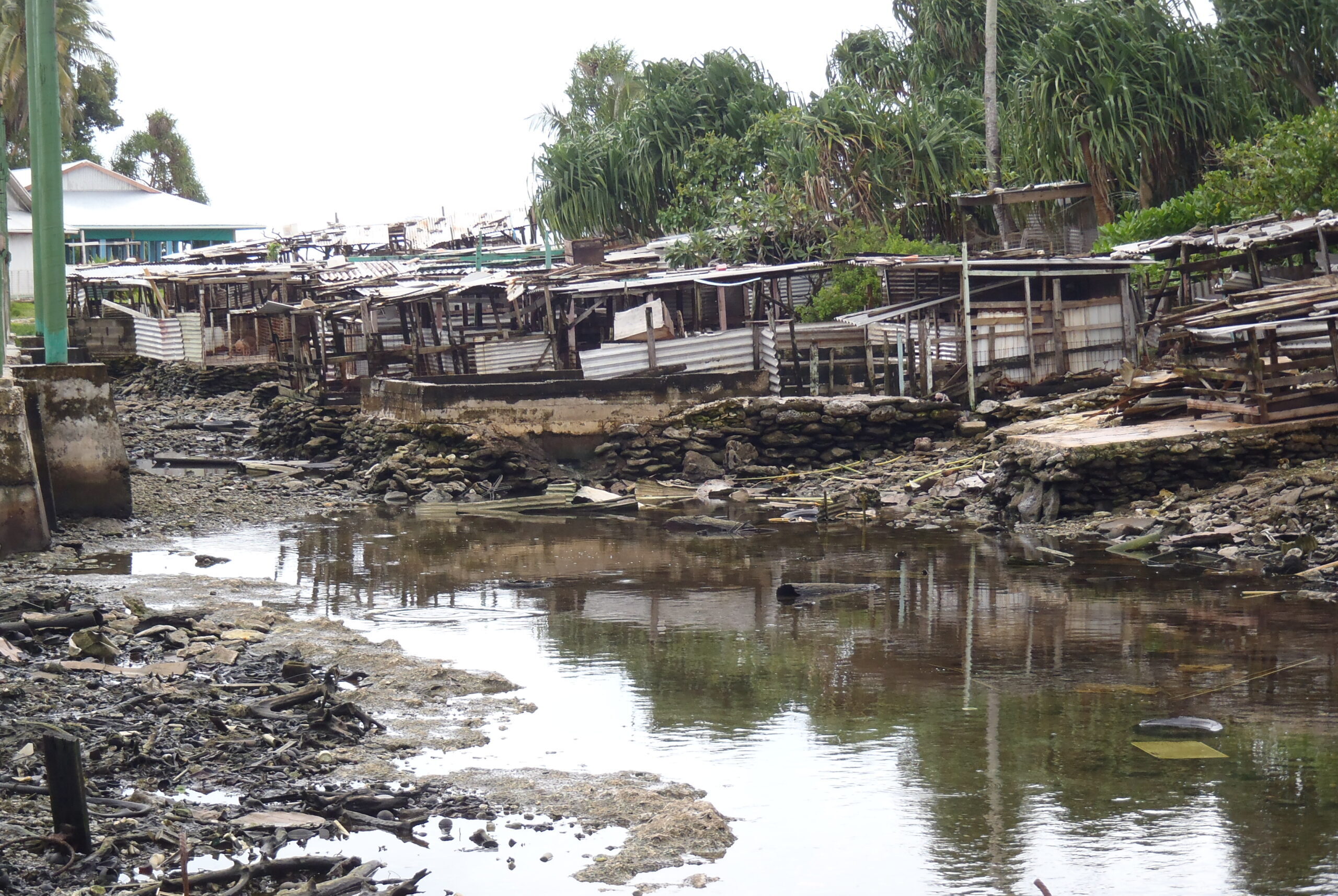
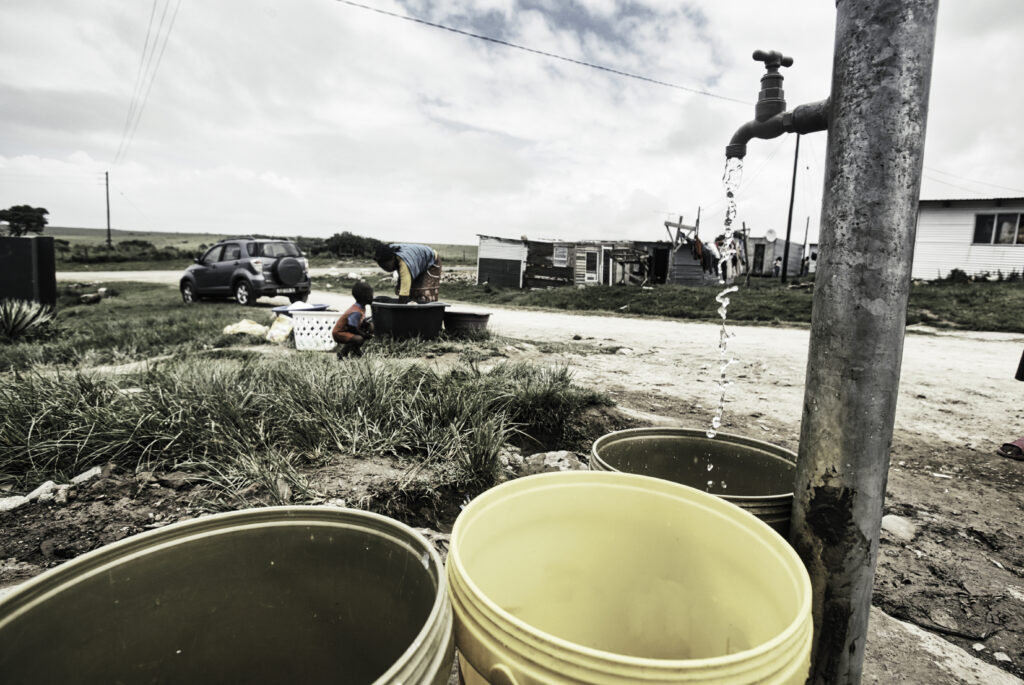

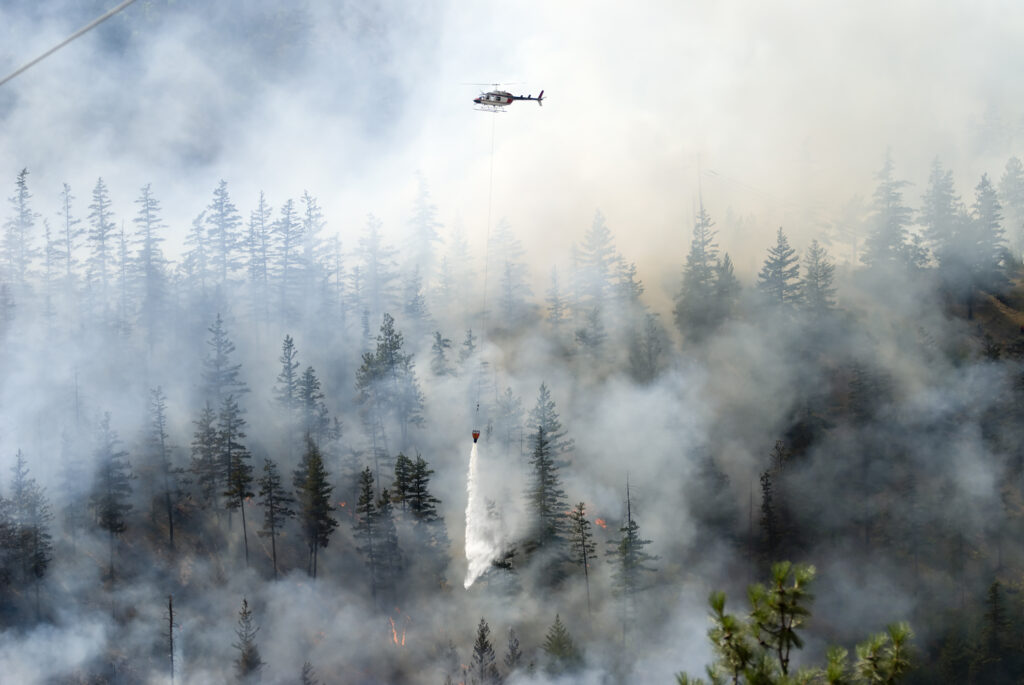
The Master of Science in Climate Change and Sustainability (MSc CCS), can also be obtained in a stackable manner requiring the completion of the Graduate Certificate, followed by completion of the Graduate Diploma and finally completing the requirements of the MSc, as outlined in the diagram below.
This approach provides you with the flexibility to build your MSc qualification in a staged manner.

Please refer to the relevant programme link on this website for details of the structure, admission and fees of each programme.
Ultimately, the MSc requires completion of 40 course Units (see above diagram).
Unique to the stackable approach we offer two pathways to completion of the MSc component.
Pathway 1. An entirely coursework pathway where candidates take one core course, and three additional elective courses.
Pathway 2. Includes a research component. In this pathway candidates take one core course, one elective course, and the research project (2 course equivalent).
Please refer to "Courses" tab on the MSc page for the detailed information on core and elective courses.
Fees and Payment
The total tuition fee for the stackable MSc totals the fee for the MSc programme, which for the AY2024/2025 intake is S$50,000 (excluding GST). However, you will only pay for the relevant tuition fee amounts for the component of the stackable degree you are enrolled in as detailed below.
Fees for the Graduate Certificate S$ 20,000
(four courses)
Additional fees for the Graduate Diploma S$ 10,000
(two additional courses)
Additional fees for the MSc CCS S$ 20,000
(four courses)

